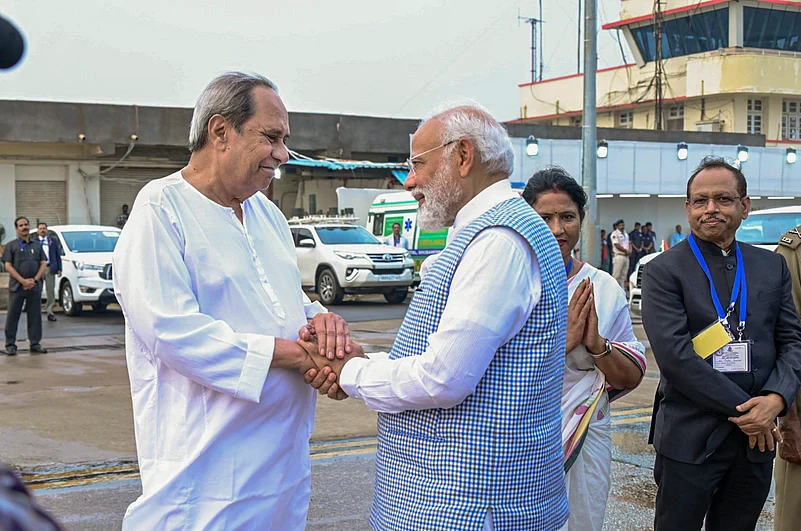Odisha Chief Minister Naveen Patnaik-led Biju Janata Dal is expected to enter into an alliance with the BJP for Lok Sabha and assembly polls, which are held simultaneously in the state, 15 years after the party severed its decade-long alliance with the BJP following the August 2008 communal riots in Kandhamal district. However, a formal announcement is awaited.
The indications of an alliance between the two parties came after Odisha BJP leaders on Wednesday met Home Minister Amit Shah and the party's national president J P Nadda in Delhi. During Prime Minister Narendra Modi’s most recent rally in Odisha, he praised Patnaik as a “Lokpriya (popular)” Chief Minister while the latter lauded Modi for “his focus on the development of Odisha” and for taking India forward to be the “third largest economy in a few years”.
This is not the first time both leaders have sung praises of each other, nor is it the first time both parties have allied with each other.
Elections in 1998-2004
It was in 1998 when Naveen Patnaik floated his own regional party and joined the BJP government at the Centre, which was then led by Atal Behari Vajpayee, as Union Minister for Steel and Mines. The BJD and BJP fought together in the Assembly polls of 2000 and 2004 in Odisha and bagged a combined vote share of around 47 per cent both times and defeated Congress.
In 2000, the BJD fought in 84 seats and won 68 and the BJP fought 63 and won 38. But their combined vote share of 47.6 per cent was enough to overpower Congress’ vote share of 33.8 per cent.
Similarly, in 2004, BJD won 61 seats and BJP 32 whereas the Congress won 38 seats. But the BJP-BJD alliance’s vote share was 44.5 per cent, in comparison to Congress’ (and the Left’s ) 34.4 per cent vote share.
The two parties also allied with each other for Lok Sabha elections in 1998, 1999, and 2004 and won a majority of the seats in Odisha.
Ahead of 2009 Lok Sabha elections
In what came as a major jolt to the NDA ahead of Lok Sabha elections in 2009, BJD chief Patnaik announced that the talks for the simultaneous Lok Sabha and assembly elections in April had “failed”, marking the end of their decade-old tie-up.
The move came a year after deadly riots in Kandhamal, following the killing of VHP leader Swami Laxmanananda Saraswati by Maoists, that left some 40 people dead and thousands injured, according to government estimates.
According to the Kandhamal Committee for Peace and Justice, more than 90 people, largely Christians, were killed and 56,000 people displaced. While both Hindus and Christians were involved in the violence, the latter bore the brunt of the attacks, human rights activists told Reuters. Meanwhile, government officials have denied allegations of neglecting Christian victims or being influenced by powerful Hindu groups.
Among those people who were convicted for the violence was also BJP MLA Manoj Pradhan who was sentenced to seven years in prison. While on one hand, BJP moved to call a bandh on Christmas day after the violence, Patnaik was also facing allegations of not protecting minorities in the state, the Wire reported. The BJD then decided to part ways with the BJP after seat-sharing talks failed.
Support To The BJP
Even after severing the alliance, BJD has provided support to the Union government in the past few years in the passage of crucial bills like criminalising triple talaq, reorganising Jammu and Kashmir into two Union Territories and the UAPA amendment bill (all in 2019).
Amid buzz of their tie-up, Congress on Thursday said it has always been stating that the BJD and the BJP are two sides of the same coin and whatever opposition the two show to each other in Odisha is merely "shadow boxing".


























